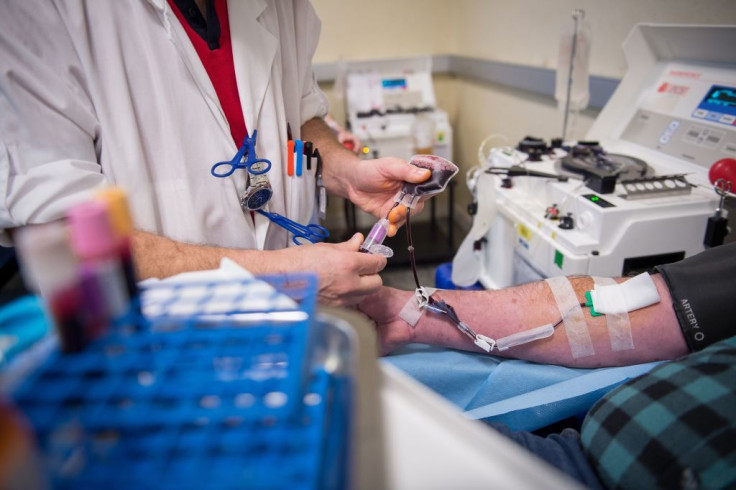Coronavirus Treatment: Convalescent Plasma Appears Promising In Treating Severely Ill COVID-19 Patients
With the surge in the proportion of COVID-19 patients, the United States Food and Drug Administration is facilitating access to coronavirus convalescent plasma to treat patients with serious or fatal infections. Although the clinical trials to evaluate the safety and efficacy of this treatment are underway, the U.S. FDA is granting permission to clinicians for use of investigational convalescent plasma under 'Single-Patient Emergency Investigational New Drug Applications.'
Since there is no known cure that exists and a vaccine could take at least a year to be available, it allows the use of such an investigational drug to treat COVID-19 patients by a licensed physician upon FDA authorization. However, it doesn’t include the treatment as a prevention strategy against the coronaviruses.
“It is possible that convalescent plasma that contains antibodies to SARS-CoV-2 (the virus that causes COVID-19) might be effective against the infection. Use of convalescent plasma has been studied in outbreaks of other respiratory infections, including the 2009-2010 H1N1 influenza virus pandemic, 2003 SARS-CoV-1 epidemic, and the 2012 MERS-CoV epidemic. Although promising, convalescent plasma has not been shown to be effective in every disease studied," MedicineNet quoted the U.S. FDA statement.
The procedure of using convalescent plasma relies on the fact that individuals who have recovered from COVID-19 have antibodies in their blood plasma that maintains defense against the deadly viral infection. So, the aim is to identify coronavirus survivors who are ‘hyperimmune’ to the virus and invite them to donate blood for potential treatment.
Giving the convalescent plasma to patients and their contacts can be done under consideration with medical funding bodies, The Guardian reported. The clinical trials will look for evidence that the plasma from recovered patients can reduce infections in carers and healthcare workers so that they can continue their work and prevent their patients’ health from deteriorating and also help improve the condition of the critically ill patients and reduce deaths and free up the lifesaving ventilator devices that are in demand.
“Trials need to be undertaken, otherwise we will not know if this intervention is effective and worthwhile. It may not be a silver bullet, or it may work for instance to stem the development of Covid-19 infection in contacts such as healthcare workers and their families, but not perhaps be as effective to treat severely ill patients being ventilated,” The Guardian quoted Professor David Tappin, a senior research fellow at the University of Glasgow.

© Copyright IBTimes 2024. All rights reserved.






















